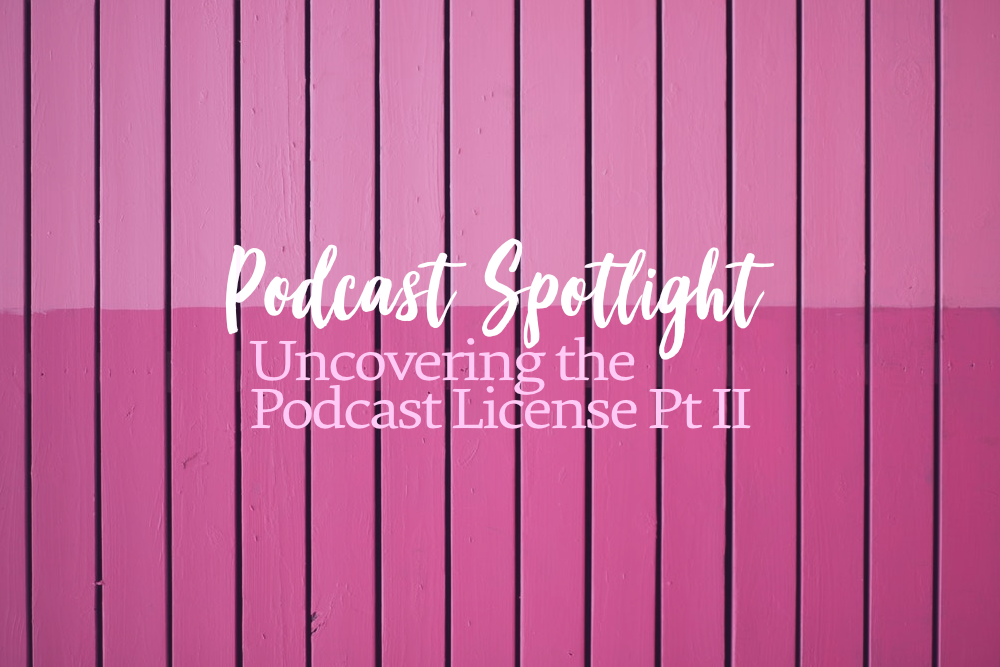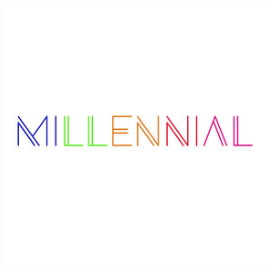
Our clients come from all walks of life—and industries—yet they all share a common mission: too find music that serves their content’s purpose.
We’ve spotlighted everyone from independent filmmakers whose work has premiered at Sundance to Tribeca and dug into the stories of music video directors and producers. But what about the non-visual creative projects that also make the world go ‘round?
Kicking off our Uncovering the Podcast License series last week, we looked at the number of ways music and sound can serve a podcast’s narrative and theme—how a podcast license of the right music can intrigue listeners to tune into future episodes, while creating a signature experience for the show’s overall brand.

Audio producer and podcaster, Megan Tan knows a thing or two about licensing music for her esteemed podcast, Millennial—a notable series on growing up and finding a place in the “real world.” While Tan wrapped up the series a couple years back, the show has been recognized by publications like The Atlantic, The Huffington Post and A.V. Club, it remains to be a relatable series that can be applied to today.
Now living in New York City, Tan is still a producer, working on Gimlet Media’s The Habitat, NPR’s Planet Money and on a Pineapple Street Media podcast. Through her podcast and productions, Tan has utilized music and sound design to cultivate an immersive environment strictly through audio.
We sat down with Tan to look back on her arrival in podcasting (when it was still new and expansive territory) and her experience in making the hit podcast, Millennial:
Marmoset: Could you give us a look into what it was like before you made your first podcast
Megan Tan: Basically I wanted to be a radio producer and I had an internship at NYC Radio Lab for a semester but I didn’t actually make radio, I didn’t know how to make radio. And my background is in photo journalism—and in photo journalism, what you do is, you go out and you shoot, right?
You Take photos and you create a portfolio and then people can see your work and then they can hire you. So I guess I just took that idea and decided to apply it to this new industry and Millennial started out almost like a portfolio piece; because the closest thing that I had was my life. I just wanted to practice collecting audio, interviewing people, writing scripts, mixing, making episodes and making radio stories.
M: What did it look like leading up the Millennial gaining more momentum and attention?
Tan: The whole idea was that all the work that I was doing would be a portfolio to get me a job in public radio—which is dead. I ended up getting a job at New Hampshire public radio. There I was continuing to make Millennial, I had like almost two full-time jobs. I was making this podcast and then I was working full-time at a public radio station.
And then at one point the podcast started getting more praise and press than the shows at the public radio station. And I just kind of decided to make this leap and dedicate myself to doing it full-time.
M: Did you ever view making Millennial as a way of connecting with other people through your own experiences?
Tan: You know, that wasn’t the goal, because at the time—I don’t know how many podcasts there were, maybe 250,000—I mean, right now the market is really saturated, but even then you’re like ‘who’s going to listen to them?’ Right, so yeah and to be honest, because it was built from the ground up and a lot of the press was organic, I didn’t think anybody was going to listen.
Yeah, so when people were listening, I was like oh shit. A friend of mine just said to me last night, you know, sometimes the best dancers are the people who dance as if no one’s watching. I feel like that’s how Millennial was created. Where it was created in this way where I just spoke into a microphone like no one was listening.
M: Looking back, what did the evolution of Millennial look like from its creator’s standpoint?
Tan: It did evolve because it had to become more sustainable. That’s why there are multiple seasons, if you keep listening, we’re really trying to find our footing after we get past the first season. Instead of it just being a ‘Millennial, a podcast about maneuvering your twenties post-graduation captured in real time,’ it just becomes ‘Millennial, a podcast about coming of age.’
And so that is broader and the purpose was for it to encompass a lot of people’s stories. But the problem with that is, you know, once you give an audience a very specific character to care for—which was me— the less personal you become. It was also the identify that was changing in real-time, as well.
The purpose also changed. It was no longer a portfolio or a personal essay about growing up or a personal documentary. It also has to become a machine, had to be able to live off it full-time and pay people—it became a business. So the mission had to kind of change a little bit.
M: What did the ‘making of’ such a successful podcast look like story-wise? How did you decide what content to focus on as a millennial yourself?
Tan: We had a bit of a formula but each episode was different, you know? Hopefully the entry was some sort of peg to my life. Whether it was long distance relationships or being Asian in a very white setting.
And then we would try to branch off, maybe do other people’s stories sometimes—it was still my story. And I would just collect tape all the time. Like if I was still making Millennial, I would say, ‘hey do you mind if I record our conversation?’
M: What’s an episode that stands out in your memory as one of your favorites?
Tan: I really enjoyed making “Brunchies,” which is the third episode, because it’s purely sound. I lavved myself when I was doing a shift one day, so I have sounds basically from an entire work day compressed to like two minutes of audio. It was just kind of fun to create that scene with all of that tape.
M: We know you’re busy plugging away in New York—what kind of projects do you have in the works right now?
Tan: Since wrapping up Millennial, I’ve helped produce Gimlet Media’s The Habitat, then there’s also Pineapple Street, they did Missing Richard Simmons; I helped them produce a couple of those shows. I helped them produce Going Through It with Ann Friedman of Call Your Girlfriend. And then also another show called The Unwinding of a Miracle and worked at NPR’s Planet Money. And just recently reported on a piece for NPR’s All Things Considered.
A big thanks to Megan Tan for taking us behind the scenes in making Millennial—it’s just one example of great podcasts utilizing music and sound to create an immersive audio experiences. Check out the full series here and more of her work here.
